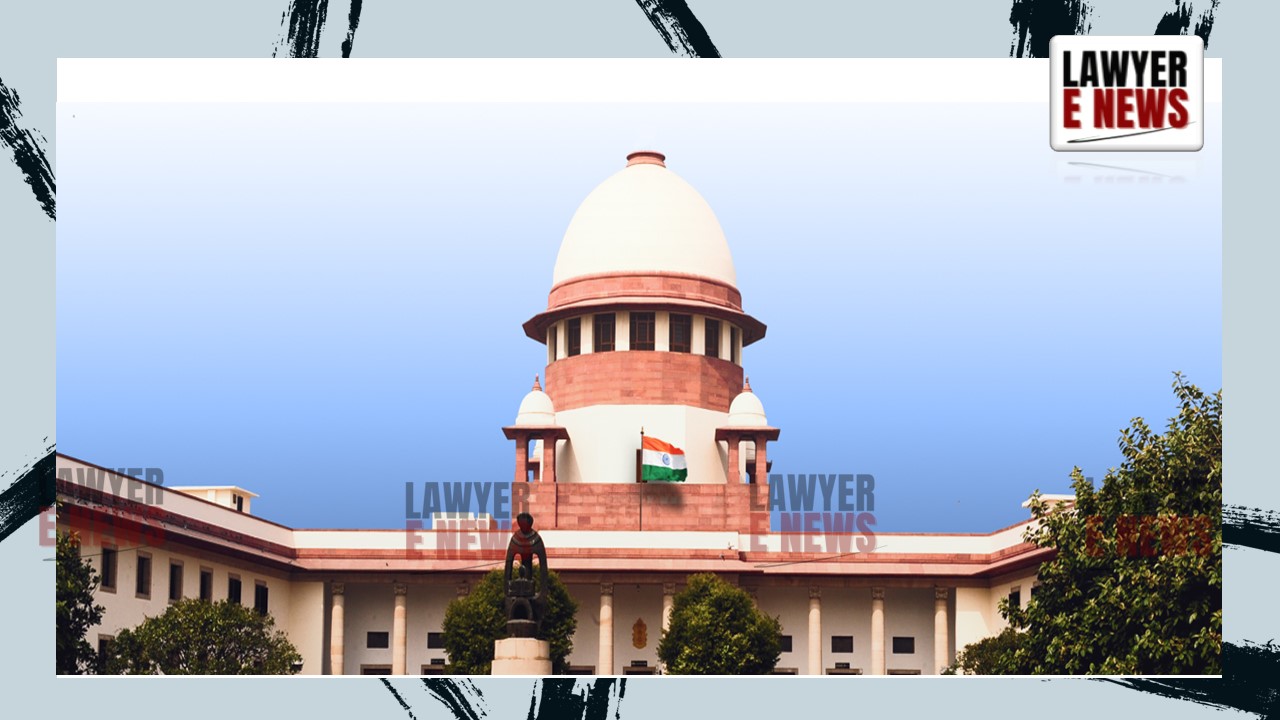-
by sayum
14 February 2026 2:22 PM



"Compassionate appointment is not a vested right; it is aimed at addressing immediate financial hardship following the death of a government employee," ruled the Supreme Court.
On November 13, 2024, the Supreme Court of India delivered a landmark judgment in Tinku vs. State of Haryana & Ors., Civil Appeal No. 8540 of 2024, concerning compassionate appointments under government policies. The Court dismissed Tinku’s claim for employment under compassionate grounds, citing an 11-year delay from the death of his father, but permitted the mother to apply for ex-gratia compensation.
The appellant, Tinku, is the son of Jai Prakash, a Haryana Police constable who died in service in 1997. At the time of his father's death, Tinku was seven years old. Under the prevailing 1995 ex-gratia policy, compassionate appointments were available only for Class III and IV posts. His illiterate mother applied on his behalf but was advised to wait until Tinku reached the age of majority.
In 2008, Tinku, upon turning 18, applied for compassionate appointment. The Haryana government rejected his claim in 2009, citing revised 1999 instructions requiring minors to reach majority within three years of the employee’s death to be eligible. The case escalated through the High Court and intra-court appeals, eventually reaching the Supreme Court.
Eligibility for Compassionate Appointment: Whether Tinku was eligible for compassionate appointment despite the delay in attaining majority and the subsequent change in policies.
Promissory Estoppel: Whether the government’s earlier assurances (entry of Tinku's name in a "Minor’s Register") created a legitimate expectation of compassionate appointment.
Right to Equality under Article 14: Whether denial of employment violated equality principles, especially when similar benefits were granted in comparable cases.
Entitlement to Ex-Gratia Compensation: Whether the appellant’s mother was eligible for financial compensation under the 2006 rules.
On Compassionate Appointments: The Court held that compassionate appointments are not a matter of right but are an exception to general employment rules. Their purpose is to alleviate immediate financial distress following an employee’s death.
"Compassionate appointment is provided to bail out a family facing extreme financial difficulty and should be claimed within a reasonable time," the Court noted.
The Court relied on Umesh Kumar Nagpal v. State of Haryana, which emphasizes that compassionate appointments cannot be granted beyond the intended purpose of immediate relief.
On Promissory Estoppel and Equality: Rejecting the claim, the Court observed that earlier communications did not constitute a legal commitment. It added:
"No direction can be issued mandating the State to perpetuate illegality or irregularity committed in favor of an individual or group."
On Ex-Gratia Compensation: The Court highlighted that the Haryana government’s 2006 Rules allowed dependents of deceased employees to opt for ex-gratia financial relief. However, the appellant’s mother was never informed of this provision.
To address this lapse, the Court granted the mother a one-time opportunity to apply for ex-gratia compensation. The authorities were directed to decide within six weeks and pay compensation without interest if processed promptly, or with 6% interest for delays.
The Supreme Court reaffirmed that compassionate appointments are strictly governed by policies meant for immediate relief and cannot be claimed as a vested right. However, it recognized the State's procedural lapse in not informing the widow about ex-gratia options and remedied this by allowing her to apply belatedly.
Date of Decision: November 13, 2024
